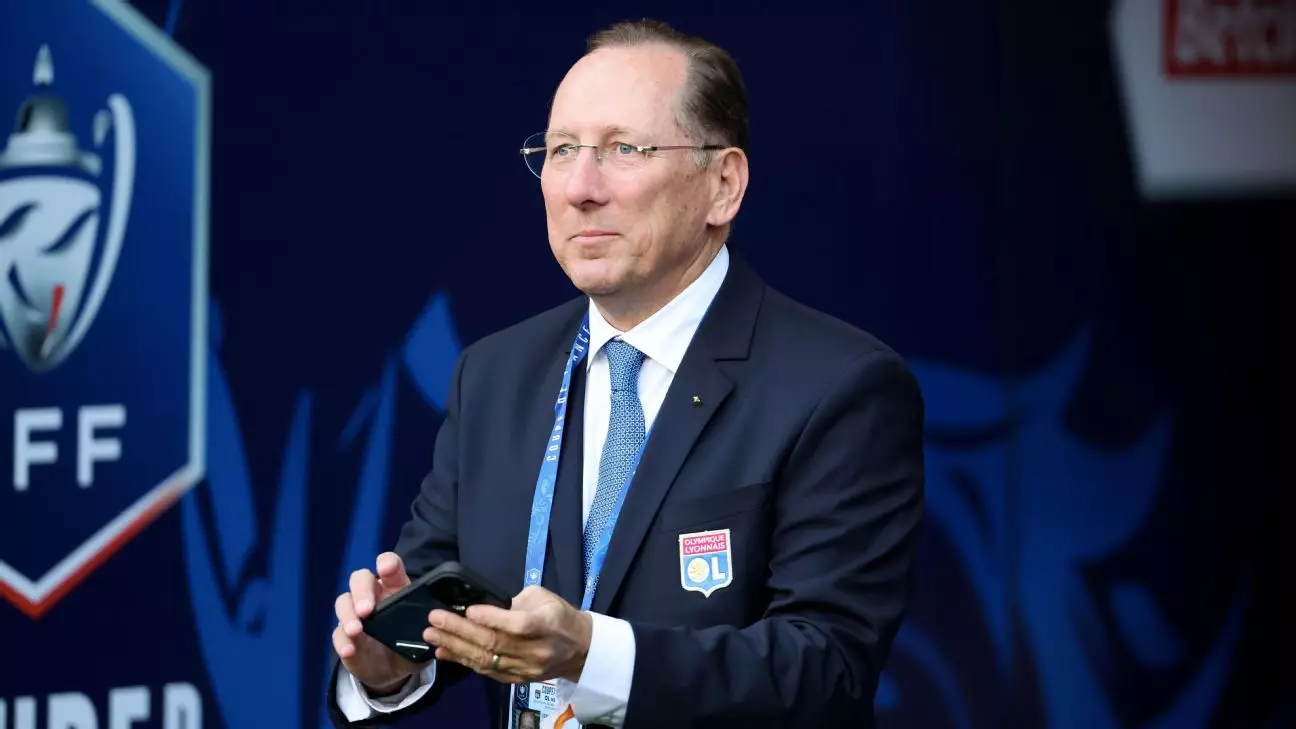The relegation of Olympique Lyonnais to Ligue 2 marks a significant turning point—not just for the club but for its American owner, John Textor. Lyon’s demotion, confirmed after an exhaustive financial review by the DNCG, underscored more than just struggles on the pitch. It unveiled the intricate and often unforgiving nature of French football governance, where financial discipline is scrutinized with relentless rigor. Textor, who owns Lyon through Eagle Football Group, admitted openly to grappling with the political landscape, acknowledging that his American business style clashed with the realities of French football administration.
This candid self-reflection stands out in a world where club owners often play the victim or dodge accountability. By openly conceding “I have not been so good at the politics of France,” Textor highlights a critical misjudgment: that success in football ownership requires much more than financial muscle or sporting ambition—it demands an adeptness at navigating local power structures, regulatory frameworks, and cultural nuances. This misstep ultimately cost Lyon a place in the top tier and severely strained relations with football authorities.
Financial Strength Amid Bureaucratic Failures
Despite the suspension and stigma of relegation, Textor insists Lyon’s financial position remains robust, emphasizing the club’s liquidity and the fact that Eagle Football Group cleared UEFA’s rigorous sustainability review. This contradiction between on-paper financial health and regulatory censure reveals an opaque, nuanced conflict between different governing bodies and their distinct criteria. While UEFA focuses on broader financial sustainability, the DNCG’s decision hinged on more localized “specific elements” within Textor’s management approach—areas where the American owner admits his “process” disappointed French regulators.
This tension speaks to a larger debate in football finance: is the complexity of national regulatory environments an impediment or a safeguard? In Textor’s case, his experience shows that financial capital alone doesn’t guarantee smooth operations. Successful football ownership today is as much about relational and bureaucratic intelligence as about money.
Strategic Withdrawal and a New Direction
Textor’s announcement to reduce his direct involvement in Lyon’s daily operations signals a strategic reshuffling rather than resignation. His pivot to prioritize Eagle Football Group’s broader portfolio and concentrate efforts on the Brazilian club Botafogo is telling. It reveals a pragmatic approach to resource allocation and governance—stepping back where expertise and patience are lacking, and refocusing on environments where his style and vision might have greater impact.
The sale of Eagle’s 43% stake in Crystal Palace, finalized shortly before the Lyon relegation confirmation, further underscores this recalibration. It suggests a retreat from the highly politicized and regulation-heavy English game, perhaps in search of a less volatile environment or more compatible partnership models. Yet, intriguingly, Textor has not abandoned the UK football market altogether; he hinted at identifying a new acquisition target to replace Crystal Palace, framed as a “collaboration between the clubs” that can yield mutual benefits.
The Complex Reality of Modern Football Ownership
John Textor’s experience draws attention to the evolving challenges owners face in modern football, particularly foreign investors entering leagues with entrenched systems and cultural expectations. His admission of falling short in the “politics” of French football is a refreshing moment of honesty, often lacking in an industry riddled with ego and grandstanding.
For onlookers and aspiring club owners, his story is a cautionary tale. Football ownership is not merely transactional—buying a stake and pumping money into a club isn’t enough. It requires a blend of financial savvy, political acumen, cultural sensitivity, and collaborative leadership. Textor’s willingness to realign responsibilities and recognize his limitations will likely shape his future ventures more sustainably than persisting in a partial or adversarial role.
Ultimately, this episode illustrates that even wealthy, ambitious owners must adopt humility and adaptability in an environment where passion intersects with complex regulation and tradition. John Textor’s journey serves as a reminder: success in football ownership demands mastering not only the sport but also the intricate ecosystem surrounding it.

Leave a Reply